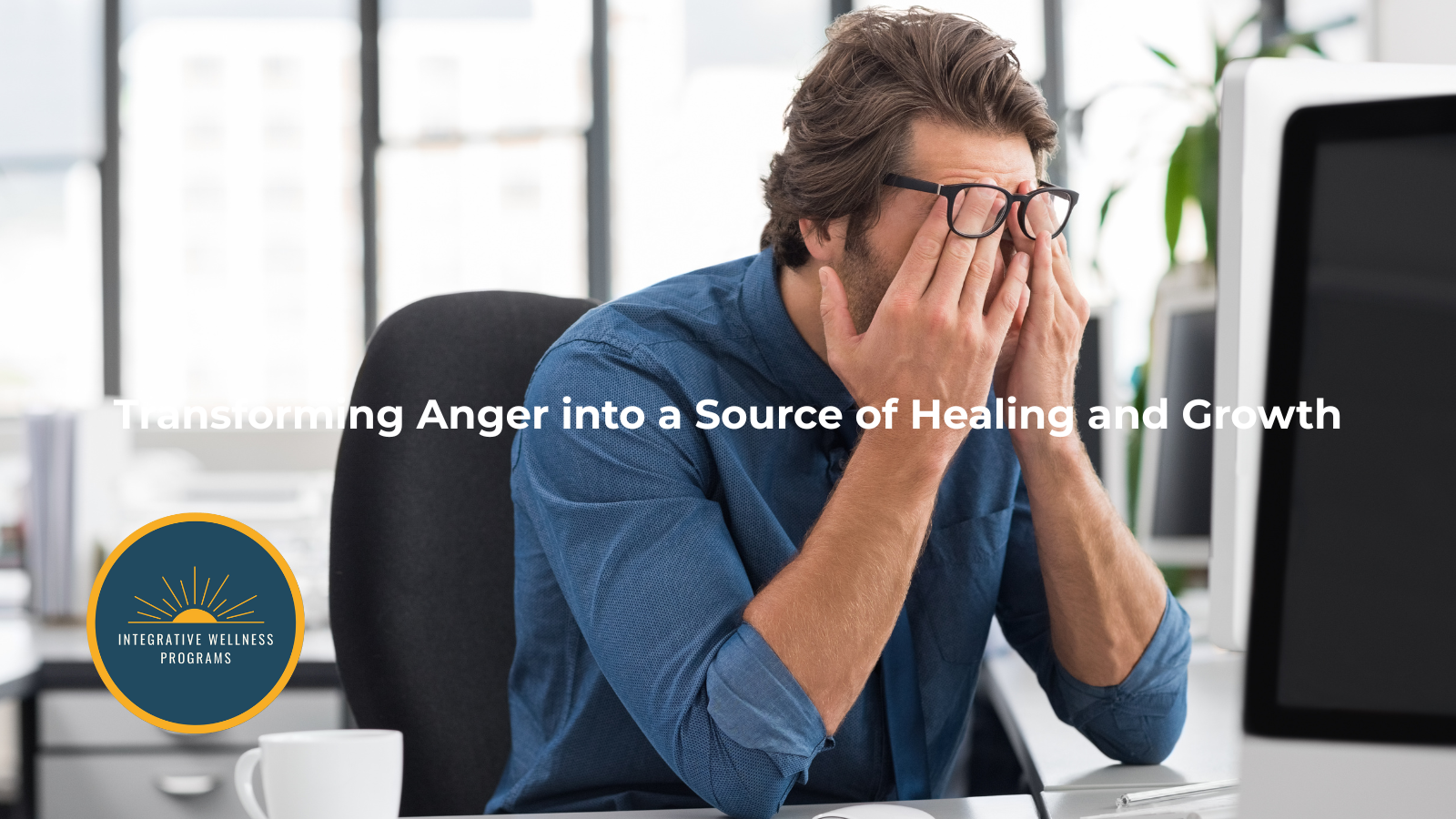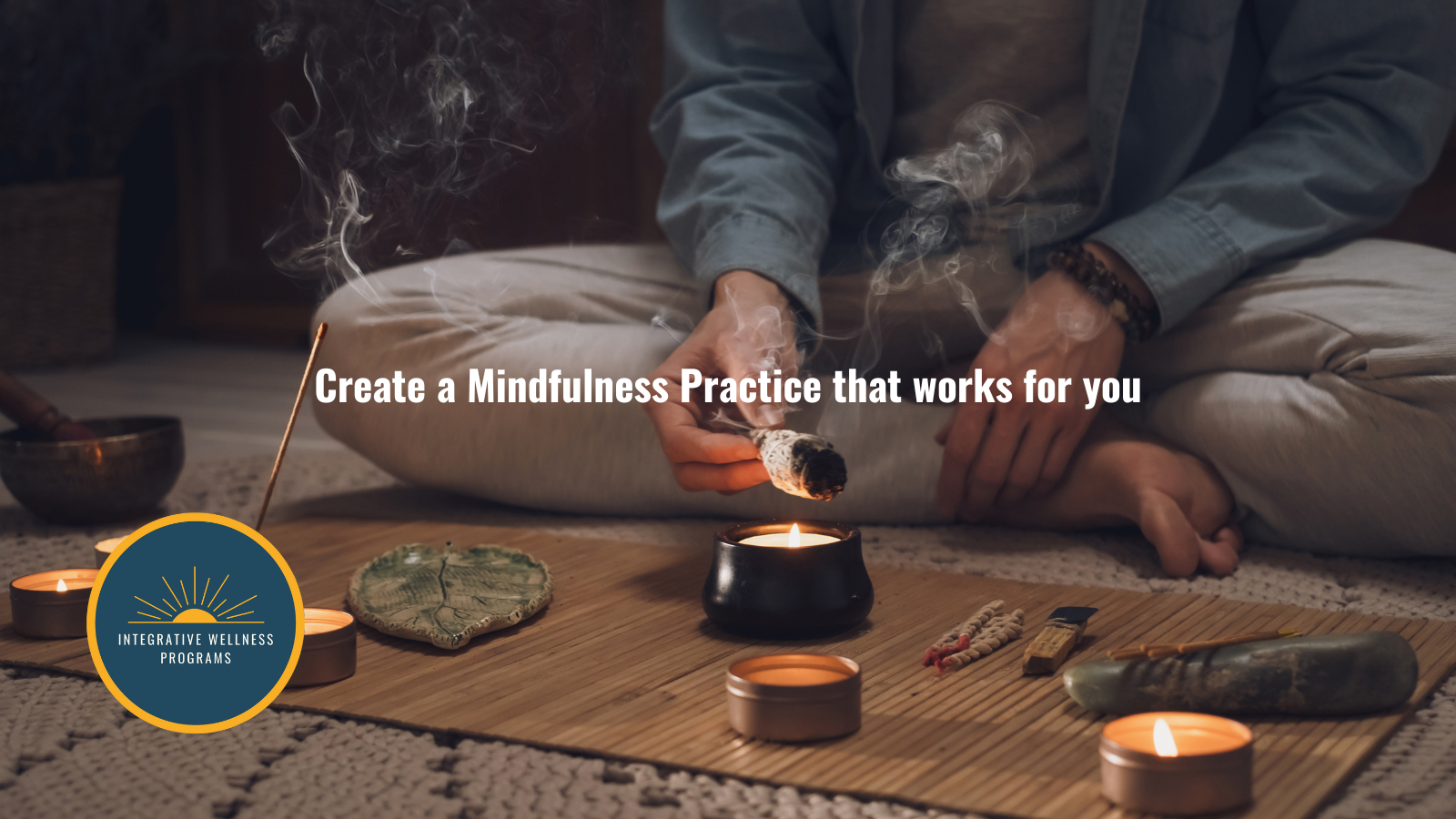IWP Blog
Years of working with clients have given us a deep understanding of which integrative health solutions and preventative wellness practices, skills, and strategies are highly effective. We have written and created the following resources based on what we know and what the research shows.

How Radical Curiosity Drives Meaningful Change
How Radical Curiosity Drives Meaningful Change
By Wayne Klee, LPCC-S, LMHC
This blog explores how deep, intentional self-reflection—what Wayne Klee calls radical curiosity—can lead to lasting emotional healing and meaningful personal change. Therapy provides a space to uncover and process the unseen wounds that shape our behavior, especially those rooted in trauma, isolation, or shame. But healing goes beyond symptom relief; it requires exploring the beliefs and emotional patterns beneath the surface.
Klee emphasizes that practicing radical curiosity in daily life—by pausing to ask deeper “why” questions during emotional reactions—helps bring unconscious patterns into conscious awareness. This creates opportunities for growth, compassion, and new ways of relating to ourselves and others. Rather than striving to fix everything, radical curiosity invites us to see with “new eyes,” shifting our perspective in ways that foster insight, resilience, and lasting change.

Psychological Health: Transforming Anger into a Source of Healing and Growth
Psychological Health: Transforming Anger into a Source of Healing and Growth
By: Ryan Lewis, LMHC, CEO & Founder
Anger is often misunderstood as a destructive force, but at Integrative Wellness Programs (IWP), it’s reframed as a vital signal that something within us needs attention. Rather than suppressing anger, IWP helps clients explore it as a protective response to emotional threats like boundary violations, injustice, or unmet needs. Through programs like The Calm Blueprint and the A2A (Answer to Adversity), clients learn to acknowledge their anger without judgment, regulate their nervous system, and reframe the message behind their emotions. When processed intentionally, anger becomes a powerful tool for setting boundaries, understanding emotional needs, and fostering personal growth.

This Mental Health Awareness Month, Try a 5-Point Check-In with Our 5 Pillars of Wellness
This Mental Health Awareness Month, Try a 5-Point Check-In with Our 5 Pillars of Wellness
By: Ryan Lewis, LMHC, CEO & Founder
This Mental Health Awareness Month, Integrative Wellness Programs invites individuals to engage in a simple yet meaningful 5-point check-in using their Five Pillars of Integrative Wellness: Psychological, Relational, Purposeful, Spiritual, and Physical Health. These pillars offer a holistic framework for well-being that emphasizes alignment, connection, and intentionality over perfection. Each pillar provides reflective prompts and practical suggestions—like practicing mindful self-talk, fostering secure relationships, aligning daily actions with personal values, embracing spiritual practices, and prioritizing physical care—to help individuals reconnect with what truly matters.
The message emphasizes that true wellness doesn’t come from doing more but from nurturing what sustains you. Whether you focus on one pillar or explore all five, this approach encourages realistic, personalized steps toward mental and emotional resilience. It’s a reminder that caring for your mind, body, and spirit builds a stronger foundation for long-term fulfillment—and that support is available for those who want to deepen their wellness journey.

The Importance of Self-Compassion: Just Be Nice to Yourself!
Explore practical ways to practice self-compassion, quiet your inner critic, and become your own ally in your mental health journey.

The Rollercoaster of Parenthood: Self-Care and Stress Survival Tips for Parents
The Rollercoaster of Parenthood: Self-Care and Stress Survival Tips for Parents
By: Sarah K. Hodges, LMFT (CA, WA)
Parenthood. It's like an ongoing adventure, only there’s no map, and the snack breaks are far too few. As a parent, it feels like your life has transformed into a never-ending whirlwind of feeding schedules, school pick-ups, tantrums, and laundry piles that could rival Mount Everest. Amidst all of that, taking care of your mental health sometimes feels like a luxury reserved for people who don’t have tiny humans demanding their attention 24/7.
But here's the thing: self-care isn’t a “nice-to-have,” it's a must have. You can’t pour from an empty cup, as the saying goes. And yet, here you are, surviving on caffeine, happy thoughts, and sheer willpower. So, let’s chat about how to stay sane (or at least appear to be) while juggling the day to day stress of parenthood.

How to Create a Mindfulness Practice That Actually Works for You
How to Create a Mindfulness Practice That Actually Works for You
By: Ryan Lewis, LMHC, Founder & CEO
Mindfulness isn’t about forcing yourself into a rigid routine—it’s about finding small, realistic ways to be present in your daily life. Maybe that means taking a deep breath before responding to an email, tuning into the rhythm of your footsteps on a walk, or simply savoring your morning coffee without distraction. These moments might seem small, but they add up, rewiring your brain for more calm and clarity.
The key? Make it work for you. If sitting in stillness feels impossible, try movement-based mindfulness. If your mind races, experiment with naming your thoughts instead of fighting them. There’s no single “right” way to practice mindfulness—only the way that fits into your life and helps you feel more grounded.
Setting Boundaries Without Guilt: A Guide to Healthy Relationships
Grieving the Life You Thought You Knew: The Weight of Disappointment & the Power of Moving Forward
By: Ryan Lewis, LMHC, Founder & CEO
Not all grief is tied to loss through death—sometimes, it's the quiet mourning of a life, future, or version of yourself that no longer exists. This kind of grief, often called ambiguous loss, can feel isolating and unrecognized, making it harder to process. Whether it's the unraveling of plans, shifting relationships, or the loss of certainty, disappointment carries a weight that lingers in the gap between expectation and reality. Yet, acknowledging this grief is the first step toward healing.
Moving forward doesn’t mean ignoring the pain—it means learning to carry it differently. Through self-compassion, small acts of control, and the power of gratitude, you can navigate this uncertainty with resilience. Grief may not have a clear end, but it can transform. And in that transformation, there is hope.
Grieving the Life You Thought You Knew: The Weight of Disappointment & the Power of Moving Forward
Grieving the Life You Thought You Knew: The Weight of Disappointment & the Power of Moving Forward
By: Ryan Lewis, LMHC, Founder & CEO
Not all grief is tied to loss through death—sometimes, it's the quiet mourning of a life, future, or version of yourself that no longer exists. This kind of grief, often called ambiguous loss, can feel isolating and unrecognized, making it harder to process. Whether it's the unraveling of plans, shifting relationships, or the loss of certainty, disappointment carries a weight that lingers in the gap between expectation and reality. Yet, acknowledging this grief is the first step toward healing.
Moving forward doesn’t mean ignoring the pain—it means learning to carry it differently. Through self-compassion, small acts of control, and the power of gratitude, you can navigate this uncertainty with resilience. Grief may not have a clear end, but it can transform. And in that transformation, there is hope.
Purposeful Health: Finding Meaning in Uncertain Times
Purposeful Health: Finding Meaning in Uncertain Times
By: Ryan Lewis, LMHC, Founder & CEO
In times of uncertainty, it’s natural to crave stability and control. But what if uncertainty is an opportunity to realign with what truly matters? This article explores how shifting from fear to purpose can transform life’s unpredictability into a chance for growth. Through Emma’s inspiring story and practical strategies—like focusing on what you can control, reframing uncertainty as a transition, and seeking support—you’ll discover how to navigate the unknown with resilience. If uncertainty is weighing on you, therapy can provide the tools and support needed to find clarity, confidence, and meaning amidst change.
